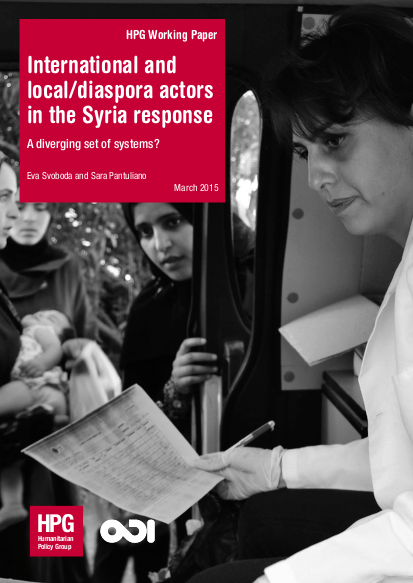
The conflict in Syria – coming amid a slew of largescale emergencies in the Central African Republic and South Sudan, alongside the Ebola crisis in West Africa – has posed particular challenges for humanitarian response in its scale and complexity. Five years since the first demonstrations against the government prospects for an end to the fighting seem as elusive as ever. As the Emergency Relief Coordinator, Valerie Amos, put it in December 2014: ‘In many parts of Syria the level of violence has worsened, with civilians continuing to pay heavily with loss of life, serious injuries, psychological trauma, ongoing and recurring displacement and massive damage to property and infrastructure’.1 At the end of 2014 the UN launched its largest appeal yet, asking for $8.4 billion to cover not only urgent humanitarian needs, but also funding for development projects. Securing that funding will be difficult: in 2014 the UN received only half of the amount it had requested from donors, and there is little to suggest that this latest appeal will fare much better.